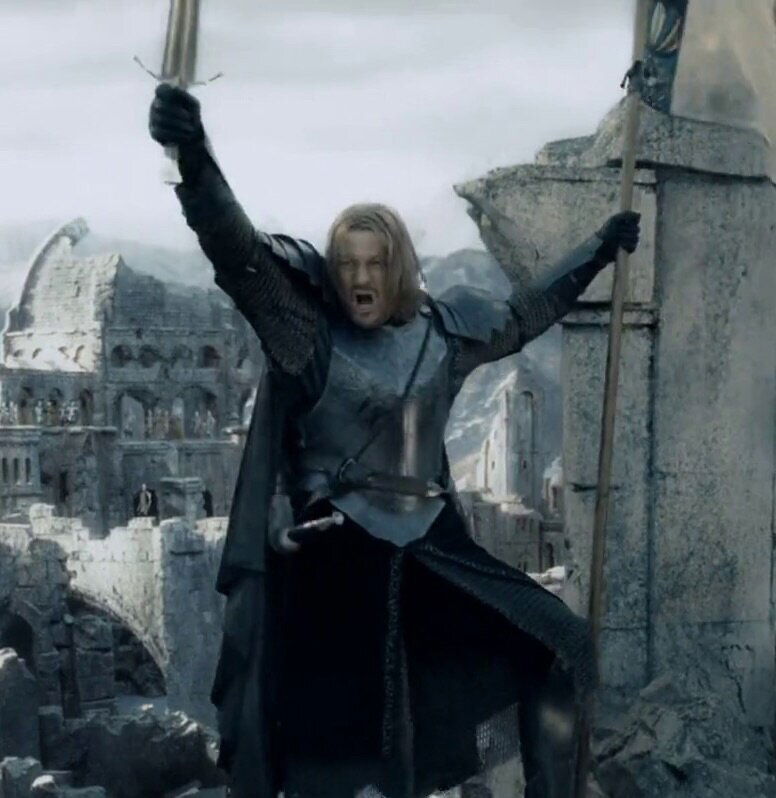The Lord of the Rings A Tale of Two Brothers
It is no secret to anyone who knows me that I love Lord of the Rings. It is one of my favorite books that has partially inspired my own works, as well as one of the most beloved stories of the century. Whether you are simply a fan of fantasy and action or enjoy the golden threads of symbolism hidden in the pages, Lord of the Rings is a story for all people of all ages, walks of life, and even beliefs. If you have never read Lord of the Rings, I highly recommend it. It is a long book but if you start, you will probably finish with no regrets. For those unfamiliar with the book or films, Lord of the Rings is an epic medieval fantasy that takes place in Middle Earth, a realm where men live alongside, elves, dwarves, wizards, hobbits, orcs, and other mythical creatures. The premise of the story is to destroy a magic ring, that was forged and belonged to the Dark Lord, Sauron. Not only does the ring have magical powers, like invisibility and greatly enhancing the powers of whoever uses it, but it corrupts anyone who tries to use it even, if their intentions might not originally be evil. If Sauron recovers this powerful ring, he lost long ago the world will almost certainly fall under his power. The free peoples of Middle Earth, mostly Men, Elves, and Hobbits resist the Dark Lord, and with the counsel of the wise, they decide on the best course of action to destroy the ring. The only problem is that the ring can only be destroyed in the same place as it was made. In a volcano right in the middle of the land of Mordor, which is also the land where Sauron and his massive army of orcs reside. I will now delve a bit deeper into the story in a particular way. If you have not read the books or seen the films, there are some spoilers.
Gondor is the largest country of free men and the only one that, with the aid of its allies, can at least temporarily hold off the vast army of the Dark Lord from taking control of all Middle Earth. The Lord of the City, Denethor, along with his sons Boromir and Faramir show readers an image of self-sacrifice and love for their people. In one sense the family is very similar.

They all care deeply for Gondor and fight tirelessly to defend its borders. The two brothers are said to look very alike and are very close in both the films and books Yet on a deeper level the two brothers could not be more different. Boromir like his father is proud and haughty, confident in his own abilities, believing that skills in battle are the only way to defeat evil. He is loved by the soldiers for his bravery and love of country and is clearly his father's favorite son over his younger brother Faramir.
Although he is nearly as skilled in battle as his older brother Faramir is far fonder of a peaceful life free from war. The book says about him, "[Faramir] is bold, more bold than many deem; for in these days men are slow to believe that a captain can be wise and learned in the scrolls of lore and song, as he is, and yet a man of hardihood and swift judgment in the field. But such is Faramir. Less reckless and eager than, Boromir but not less resolute."
Rather than seek out danger like his brother he had the wisdom to avoid unnecessary conflict and does not love the sword, but rather those it protects. Faramir also seems to have far more interest in learning about the history of the past generations, making him far wiser than his brother. Boromir, while perhaps slightly more skilled and beloved as a warrior, does not seek peace or a family. The most notable difference between the two is that Boromir wishes to use the ring as a weapon against Sauron. He believes that only through an offensive attack on the Dark Lord, wielding the weapon of the enemy, victory can be achieved. He is so enamored by patriotism and victory for his people that could be won with the deadly weapon that the ring begins to corrupt him. He lives by the sword, a sword that eventually would be broken in his heroic last stand defending two helpless hobbits. Boromir lived and died by the sword, the violent death of a soldier.
Faramir, on the other hand, although gravely wounded in battle during the Siege of Gondor recovers from his injuries and survives the war to marry and raise a family in a time of peace for his kingdom. Faramir will not compromise on virtue and knows that even if the ring might bring temporary success, all those who try to wield it end up becoming destroyed by its power. Even if a very strong-willed person was able to master the ring, he would turn into a wicked tyrant like Sauron or worse. Faramir said that he "would not use the ring, even if Gondor was falling into ruin and he alone could save her." Faramir is not willing to protect Gondor at all costs if the means used are evil. It would be better to bravely die in a war against Sauron than compromise and use the Ring to destroy the very soul of the country for a temporary earthly victory. Most importantly Faramir is able to show and accept love, something that Boromir sees as weakness.